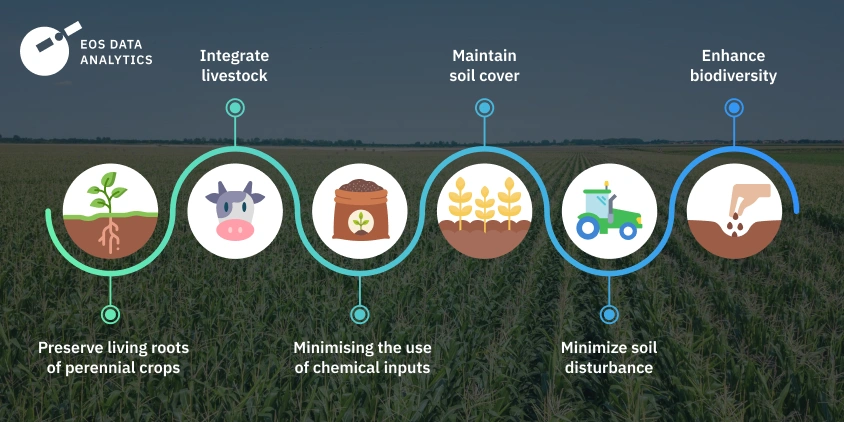Sustainable Flavour Sourcing: Ethical Practices in the Industry
- Digital Marketing
- Jun 4, 2025
- 4 min read
In a world where consumers are increasingly conscious about what goes into their food, the sourcing of flavours has stepped into the spotlight. Flavour is more than just a sensory experience—it's a story of origin, agriculture, people, and practices. With environmental and ethical concerns becoming mainstream, the food and beverage industry is undergoing a transformation towards sustainable flavour sourcing.

What is Sustainable Flavour Sourcing?
Sustainable flavour sourcing refers to the responsible and ethical acquisition of natural and synthetic ingredients used in creating flavours. It takes into account environmental, social, and economic factors to ensure that the production and procurement of flavouring agents do not harm ecosystems or communities.
Sustainability in this context means using agricultural and synthetic processes that can be maintained without depleting natural resources, degrading the environment, or violating human rights. It involves tracing the origins of ingredients, working directly with farmers, reducing carbon footprints, and ensuring fair wages and safe working conditions.
Why Ethical Sourcing Matters in the Flavour Industry
The flavour industry relies heavily on natural resources such as vanilla beans, citrus fruits, mint, spices, and herbs. Many of these are grown in regions vulnerable to climate change, deforestation, and poor labour conditions. For example:
Vanilla comes primarily from Madagascar, where farmers often face unstable prices and low income.
Citrus oils require large volumes of fruit, impacting water usage and energy resources.
Mint farming has been associated with issues like overuse of pesticides and soil degradation.
Ethical sourcing ensures that these challenges are addressed holistically by investing in long-term farming partnerships, sustainable agriculture techniques, and eco-friendly harvesting methods.
Key Ethical Practices in Flavour Sourcing
Traceability and Transparency Ethical flavour companies focus on knowing exactly where their ingredients come from. From farm to factory, traceability ensures that every stage of the supply chain is monitored. It prevents exploitation and promotes accountability, allowing brands to confidently market their products as sustainably sourced.
Fair Trade Partnerships Partnering with cooperatives and small-scale farmers under fair trade agreements helps ensure that workers receive fair wages and work in safe conditions. It also empowers communities by reinvesting profits into local development such as schools, healthcare, and infrastructure.
Sustainable Agriculture Techniques such as crop rotation, organic farming, integrated pest management, and conservation tillage help preserve soil health, reduce water usage, and maintain biodiversity. These methods support long-term crop productivity and environmental health.
Biotechnology and Synthetic Biology In some cases, the use of lab-created flavour molecules can reduce the burden on natural ecosystems. For instance, biotech companies can now replicate the flavour of vanilla without using a single vanilla bean, which helps reduce the over-dependence on endangered crops.
Carbon Footprint Reduction Sourcing ingredients locally when possible, reducing energy consumption in processing, and using eco-friendly packaging are all ways that companies are working to reduce their carbon footprint.
Certifications and Standards Labels such as Rainforest Alliance Certified™, Fair Trade Certified™, and Non-GMO Project Verified help consumers identify ethically sourced products. Ethical flavour companies actively pursue these certifications to demonstrate their commitment to responsible practices.
Case Studies of Ethical Flavour Sourcing
1. Symrise – Sustainable Vanilla in Madagascar Symrise, a major flavour and fragrance company, has established a fully traceable vanilla supply chain in Madagascar. It directly supports over 7,000 farmers with training, healthcare, and education while ensuring sustainable vanilla production.
2. Firmenich – Natural Mint with a Social Impact Firmenich sources mint from India through a program that trains farmers in sustainable practices and improves their livelihoods. The initiative has resulted in higher incomes and better quality of life for mint-growing communities.
3. Givaudan – Citrus Sourcing and Farmer Welfare Givaudan collaborates with citrus growers in Brazil, focusing on reducing water and pesticide usage. The company also invests in education and community development projects in sourcing regions.
Challenges in Implementing Ethical Sourcing
Despite the momentum, ethical flavour sourcing isn’t without hurdles:
Cost: Sustainable and fair trade products can be more expensive, posing challenges for price-sensitive markets.
Supply Chain Complexity: Sourcing ingredients from multiple global locations makes transparency and traceability difficult.
Climate Change: Droughts, floods, and unpredictable weather patterns threaten crop reliability and quality.
Regulation: Varying international standards on food safety, organic certification, and fair trade can create confusion and inconsistency.
The Role of Consumers and Brands
As sustainability becomes a decisive factor in consumer choices, brands are under pressure to align with ethical practices. However, consumers also play a vital role:
By choosing products with sustainability certifications, they create demand for ethically sourced flavours.
By supporting transparency, they encourage brands to be open about their sourcing practices.
By raising awareness, consumers can help others understand the impact of flavour sourcing on the planet and its people.
Conclusion: A Taste Worth Protecting
Sustainable flavour sourcing is not a passing trend—it’s a necessity. As the global population grows and the demand for natural ingredients rises, the food and flavour industry must innovate and commit to practices that respect both people and the planet.
Ethical sourcing practices ensure that every drop of essential oil, every pinch of spice, and every note of aroma carries with it not just taste, but trust and responsibility. By investing in sustainability, the industry can preserve the rich tapestry of global flavours while building a fairer, greener future.








Comments